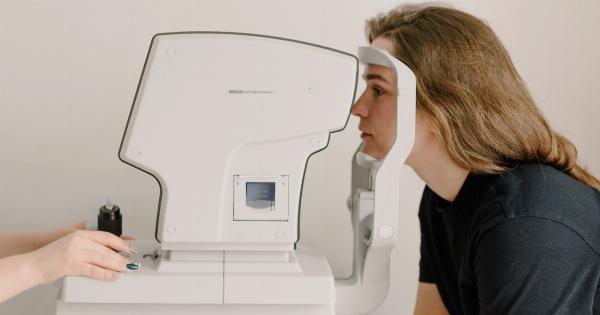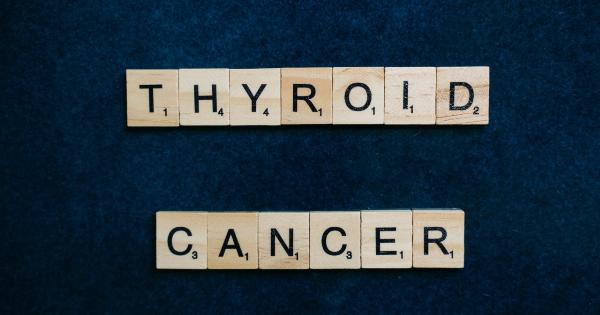When it comes to maintaining optimal health, one nutrient that often gets overlooked is iodine. Iodine is an essential mineral that plays a crucial role in the functioning of our thyroid gland.
Despite its importance, many people suffer from iodine deficiency without even realizing it. In this article, we will uncover the hidden symptoms of iodine deficiency and explore why it is crucial to address this issue.
What is iodine and why is it important?
Iodine is a trace mineral that is primarily found in seawater, rocks, and soil. Our bodies require iodine to produce thyroid hormones, which play a vital role in regulating our metabolism, growth, and development.
Iodine deficiency can impair the production of these hormones and lead to various health problems.
Common causes of iodine deficiency
Iodine deficiency can occur due to several reasons. In some cases, it may be caused by a lack of dietary intake of iodine-rich foods. Seafood, seaweed, and iodized salt are some of the best sources of iodine.
If you are not including these foods in your diet, you may be at risk of iodine deficiency. Additionally, certain medical conditions, such as thyroid disorders and autoimmune diseases, can also contribute to iodine deficiency.
Signs and symptoms of iodine deficiency
Iodine deficiency can manifest in various ways and may present with both physical and mental symptoms. Here are some hidden signs that may indicate iodine deficiency:.
1. Fatigue and weakness
Feeling excessively tired or experiencing unexplained weakness can be indicative of iodine deficiency. When the body lacks sufficient iodine, it can disrupt the production of thyroid hormones, which in turn affects energy levels.
2. Weight gain
Iodine deficiency can lead to unexplained weight gain or difficulty in losing weight. The thyroid hormones regulate our metabolism, and a lack of sufficient iodine can slow down this process, leading to weight-related issues.
3. Dry skin and hair loss
Iodine deficiency can contribute to dry skin, brittle nails, and hair loss. Without enough iodine, the thyroid gland cannot produce enough hormones to maintain healthy skin and promote hair growth.
4. Brain fog and poor cognitive function
The brain relies on thyroid hormones for optimal functioning. Iodine deficiency can lead to poor concentration, memory problems, and overall cognitive impairment.
5. Muscle cramps and joint pain
Iodine deficiency can cause muscle cramps, muscle weakness, and joint pain. This is because iodine is needed for the proper functioning of nerves and muscles.
6. Swelling of the neck
A visible symptom of iodine deficiency is the enlargement of the thyroid gland, also known as a goiter. This can cause swelling in the neck area and may lead to difficulty swallowing or breathing.
7. Mood disturbances
Iodine deficiency can impact the production of neurotransmitters, resulting in mood swings, anxiety, and depression.
8. Irregular menstrual cycle
Iodine plays a role in maintaining a healthy menstrual cycle in women. Deficiency can lead to irregular periods or other hormonal imbalances.
9. Weakened immune system
Iodine deficiency can compromise the immune system, making individuals more susceptible to infections and illnesses.
10. Impaired fetal and child development
Iodine is crucial for pregnant women as it is necessary for the development of the baby’s brain and nervous system. Severe iodine deficiency during pregnancy can result in mental retardation and stunted growth in children.
How to address iodine deficiency
If you suspect you may have iodine deficiency or are experiencing any of the mentioned symptoms, it is important to consult with a healthcare professional for proper diagnosis and treatment.
Depending on the severity of the deficiency, your doctor may recommend iodine supplementation or changes in your diet to ensure adequate iodine intake.
It is worth noting that excessive iodine intake can also have adverse effects, so it is essential to find the right balance and follow guidance from a healthcare professional.
In conclusion
Iodine deficiency is a commonly overlooked problem that can have significant implications for our overall health.
By being aware of the hidden symptoms of iodine deficiency, we can address the issue and ensure sufficient iodine intake for optimal thyroid function. If you suspect you may have iodine deficiency, do not hesitate to seek medical advice and make the necessary lifestyle adjustments to support your well-being.



























